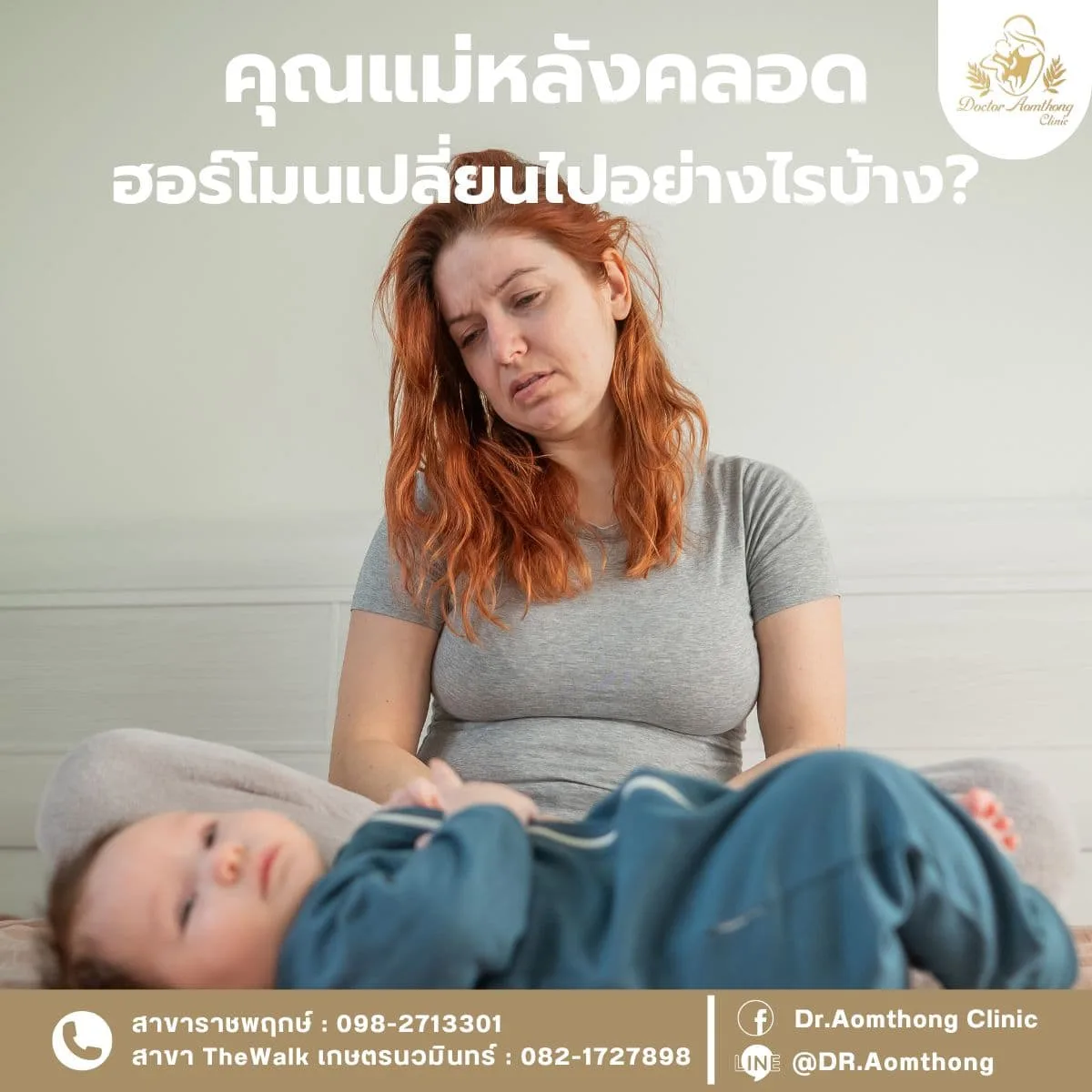Understanding Hormonal Changes in Postpartum Mothers
Childbirth is a significant time for mothers, accompanied by many changes, especially hormonal changes in the body, which affect both physical and emotional well-being. This article will introduce you to postpartum hormonal changes and their potential effects.
5 Key Hormonal Changes in Postpartum Mothers and How to Cope
- Rapid Decline of Estrogen and Progesterone: During pregnancy, mothers have very high levels of estrogen and progesterone to support fetal development. However, after delivery, these hormones rapidly decline within a few days, causing some mothers to feel fatigued, experience mood swings, or be at risk of postpartum depression.
- Increased Oxytocin: Oxytocin is a hormone that stimulates milk production and strengthens the bond between mother and child. Its levels increase when mothers breastfeed, and it also helps reduce stress, promoting relaxation and happiness.
- Increased Prolactin: Prolactin is a hormone that stimulates milk production. Its levels increase significantly after delivery, especially with infant suckling. Prolactin also inhibits ovulation, explaining why breastfeeding mothers often have delayed menstruation.
- Cortisol and Adrenaline: Postpartum, mothers may experience a temporary increase in cortisol (stress hormone) and adrenaline due to adjusting to new changes and responsibilities. Adequate rest and support from loved ones can help reduce stress.
- Thyroid Changes: Some mothers may experience postpartum thyroid disorders, such as hypothyroidism or hyperthyroidism, leading to fatigue, weight changes, or mood swings. If abnormal symptoms occur, consult a doctor.
Self-Care for Postpartum Hormonal Balance
- Get Adequate Rest: Although challenging, sufficient sleep helps the body recover and reduces stress.
- Eat Nutritious Foods: A balanced diet with protein, healthy fats, and vitamins helps the body return to normal faster.
- Engage in Light Exercise: Regular physical activity, such as walking or yoga, helps balance hormones and reduce stress.
Postpartum hormonal changes are a natural process experienced by all mothers. Understanding and taking appropriate care of oneself helps mothers adjust and live a balanced and happy postpartum life. If feelings of depression or excessive stress occur, consult a doctor or specialist. Blood test for hormone level check is available at Dr.AomthongClinic.
Dr.Aomthong Clinic
Tha It – Nonthaburi Branch: Tel. 098-271-3301
The Walk Kaset-Nawamin Branch: Tel. 082-172-7898
Email : DrAomthongClinic@Gmail.com
Facebook : DR. Aomthong Clinic
Line: @936wkzgn
Instagram : dr.aomthong
Tiktok : dr.aomthongclinic
Youtube : DR.Aomthong Clinic


